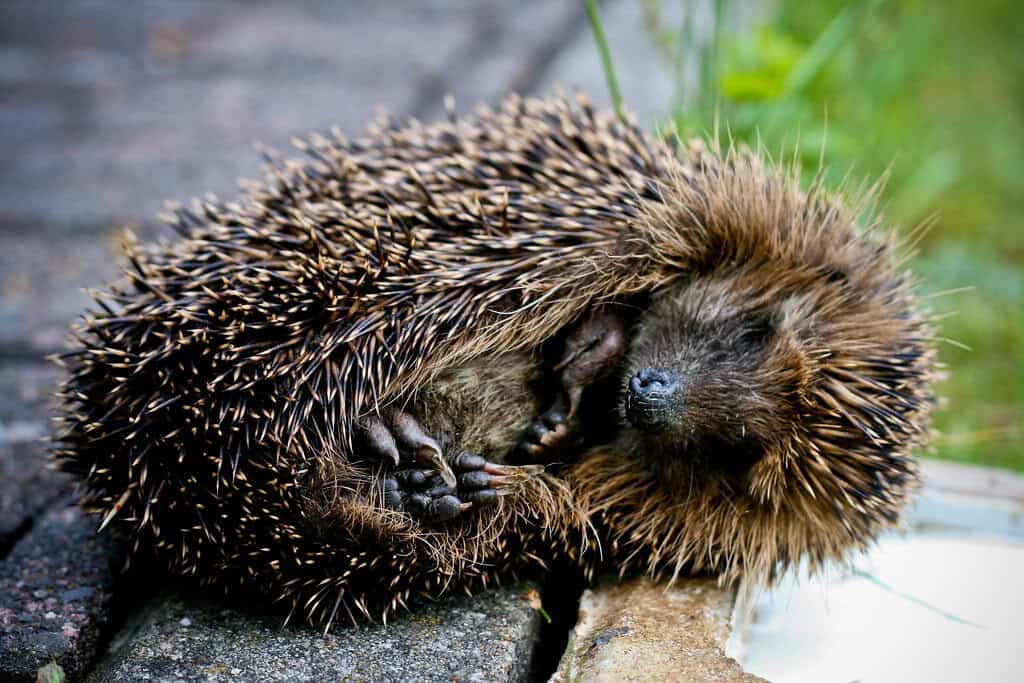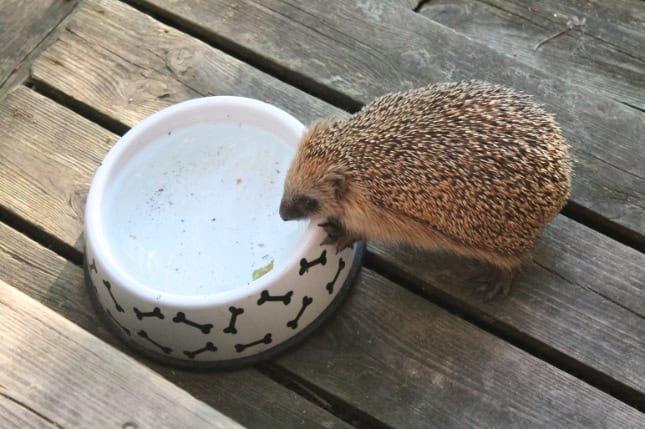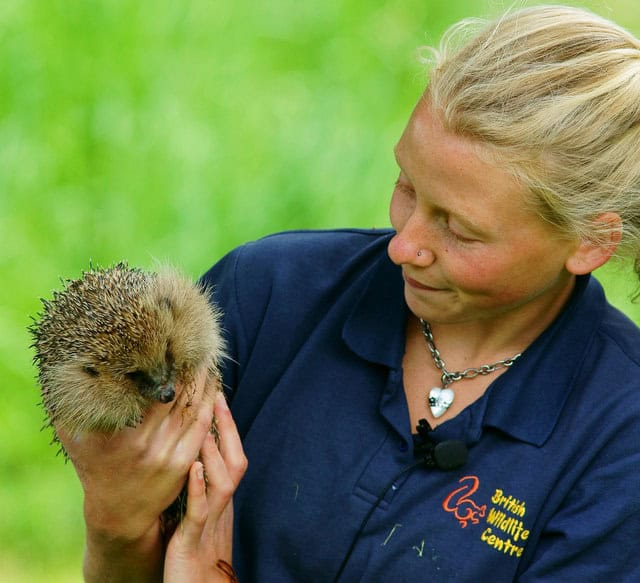Jump to:
There are two types of UK homeowners: those who enjoy seeing hedgehogs in their gardens and those who don’t. If you’re in the latter group, it can be frustrating when these little creatures have trespassed on your property, perhaps in your garden shed or garage.
But don’t worry; there are ways to handle the situation without harming them. Here are some tips to help you get started!
Check for Hibernation

During the colder months, hedgehogs may seek out quiet, undisturbed places to hibernate—and your wooden shed and garage might just be their target. If you find one during this season, it’s likely hibernating. Even if you’re not thrilled about having it there, the best thing you can do is to leave the hog alone until spring. Disturbing such creatures can be bad for their health (they might be tiny intruders, but they still need our help).
If you spot a hedgehog in your garage, keep any pesticides, paints, or fuel stored far away from its hibernation spot. The same goes for your shed; minimising activity is more feasible, though, unlike when they’re in the garage. Just try to limit loud noises or vibrations that could disrupt their rest.
Tips: Plan for relocation in advance by creating an exit path. This can be as simple as opening the garage or shed door at dusk. So, when spring arrives and they wake up, they can leave on their own. And if you end up loving the idea of having hedgehogs around, you can set up a tiny house in your garden as a new shelter option. But that’s a topic for a different blog!
Leave Them a Supply of Drinking Water

(Image Credit: Wikimedia Common)
Hedgehogs are in decline in the UK, falling by up to 30% in urban areas and 50% in rural areas. They need all the help they can get! Besides letting them sleep undisturbed during their winter hibernation, you can also provide fresh water for them. Use big plant saucers so they don’t end up tipping over.
You can also offer some food like cat or dog food, and biscuits will do. Skip the bread and milk, though, as these are not good for hedgehogs—they’re lactose intolerant!
Sometimes, you might find that the saucers you filled with water and food are empty, and the hedgehog you saw at dusk is back in its spot asleep by morning. Use this as a cue to move their food sources to a different part of your garden. This way, they’re less likely to stay in your garage or shed, especially if they’re not hibernating.
Tips: For their safety and security, choose a location near natural cover, such as hedges, shrubs, or undergrowth. They’ll also appreciate a shaded spot away from direct sunlight or rain. If you have dogs or cats, consider using hedgehog feeders with barriers or small tunnels to keep larger animals out while allowing hedgehogs to access the food.
If Your Unsure of What to Do, Leave It to the Experts

There are don’ts when dealing with a hedgehog in a shed or garage. One of these is attempting to care for them yourself, especially if they have babies. Finding them nestled in a corner might be surprising and concerning, but don’t attempt to handle or interact with them. Most importantly, don’t try to move the mother or her babies—just let them be, whether they’re hibernating or not. In such situations, it’s best to leave the job to the professionals.
Reach out to a wildlife rescue organisation or a local animal welfare group. They have the expertise and resources to handle the case properly and ensure the well-being of these little mammals. Here are other scenarios when it’s best to contact:
- If the hedgehog is injured or sick
- If they’re in an immediate danger
- If there are way too many of them it becomes overwhelming
- If you need advice on preventing future issues
Tip: In the meantime, continue to feed inside as you have been. It will be fine.
Round-up
After they have hibernated and left your shed or garage, you can make your property less appealing to them by removing potential food sources. Hedgehogs enjoy snails and slugs, so keeping these pests under control can help. These methods will help keep hedgehogs at bay, but don’t forget: lending a hand when they really need it is always a kind gesture!
If you decide to make your garden more welcoming for hedgehogs and other wildlife, check out our guide, ‘How To Make Your Back Garden A Hub For Wildlife,’ for tips and ideas.





